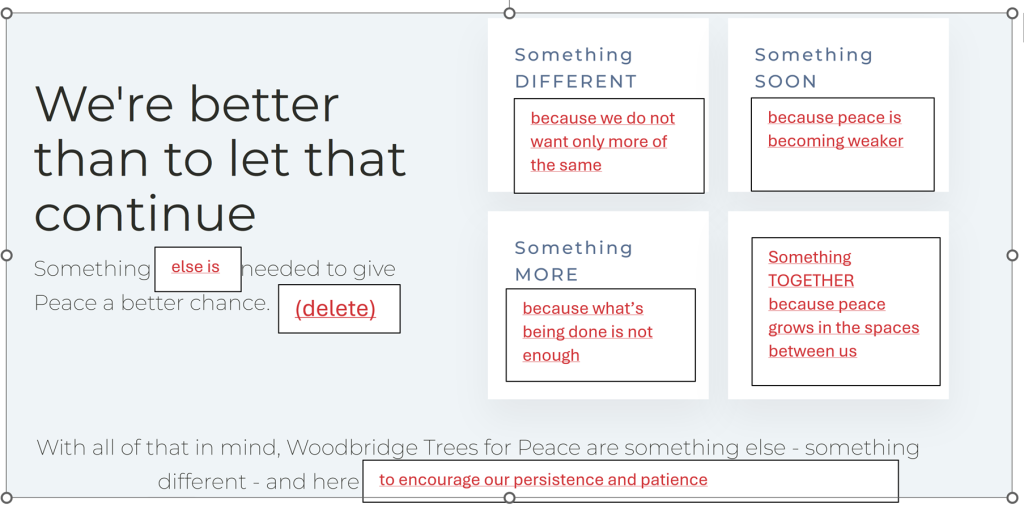Peace education
The aftermath of the 20th century World Wars included a widespread expansion of peace research in colleges for Higher Education. New theoretical ideas were refined and extended through discussion and tested in practical field work. There are now many Higher Education courses with titles such as Peace and conflict.
Some educators have explored ways of incorporating Peace education into the work of schools. There has been, for example, a post-16 course that led one examination marker to exclaim from their reading of examination scripts: “Peace is falling into safe hands”. Several interest groups have found ways to promote valuable learning for peace into primary or secondary schools. Most schools though lack the capacity for adding peace to their curriculum. [Link to LEARNING ]
Peace building
In the wider world, peace fieldwork based on twentieth century research is conducted by professional peacebuilders and researchers.
Their close engagement, investigations and negotiations benefit communities in some of the world’s most afflicted regions.
Their reports also add to our shared knowledge about peace and its challenges. Their provisional conclusions advocate effective practical responses to the fragility and breakdown of peace through, for example:
- vigilance, to enable sensitive and timely interventions and mediation
- unbiased consultations to understand sources of conflict
- negotiated ‘de-escalations’ away from violence
- staged phases of making, keeping and building peace
Their work and reports also reveal the complexity of mending peace, reflected in the range of ‘qualified’ terms that refer to peace at different stages of its reconstruction. For example contested peace, fearful peace, insecure peace, negative peace, partial peace, polarised peace, positive peace, regional peace, restored peace, stable peace, sustainable peace, unjust peace, unresolved peace, ... and more.
Meanwhile, peace remains unhelpfully fragile, with high cost to livelihoods and prosperity, in lives taken, and often in the collateral creation of new resentments.
More such work is needed.
We’re better than to let that destructive cycle prevail whenever peace fails

